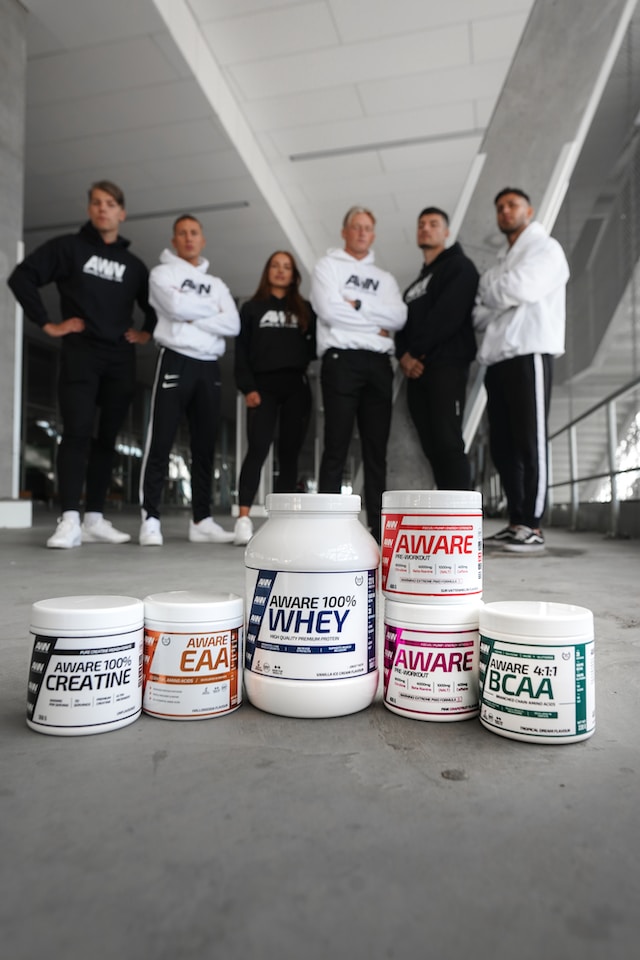Chasing the dream of being a perfect size 6 or 10 can be frustrating and challenging at the same time. With all the diets, exercise programs, and everything else there is to choose from in this 224-billion-dollar industry, The choices make it confusing when it comes to losing weight. But, looking at that figure, you should know you are not alone in your struggle. There are a lot of people who are consistent contenders in the quest to transform their bodies’ aesthetics.
Now, I have seen a few of my friends use protein powder, and I have stopped and glanced at the different products while at the grocery store. But I have never really considered using it. I like to take a more holistic, natural approach to everything I do when I can. What about you? Have you considered integrating protein powder into your weight loss regimen?
Giggling, I would assume you are, because that is the very reason you are reading this article. Before I continue with this article, I would like to thank you for taking the time to read my thoughts and information. I take great pride in sharing with you content that’s important to you. So let’s get started…
Protein powder supplements are popular in the fitness scene, and many individuals use them to help them lose weight. But my question is, does this strategy work?
The macronutrient protein is an essential component needed in the body for immunological function, muscle and tissue repair and formation, and the growth of the muscle and tissue too. Using protein daily is not the complete answer to everyone’s weight loss goals. Although eating enough protein may help with weight reduction since protein-rich meals improve satiety. And while using protein powder as part of a well-balanced diet can help you fulfill your nutrient requirements and may help you attain your weight-loss goals, it shouldn’t be relied on exclusively. Balance must be maintained in everything we do to make life run smoothly.
Let’s look at the possible advantages of integrating protein powder into your weight reduction plan. And examine its effects on hunger, metabolism, and muscle preservation, as well as provide practical ideas for taking protein powder as part of a well-balanced weight-loss strategy. I’ve got you covered. Are you ready?
Protein’s Relationship with Weight Loss
For those of us who don’t know what the function of protein is, let me shed some light. Most view protein as a nutrient linked with muscle, which is true. Protein is needed for muscle maintenance and growth, but it serves other functions as well. Protein components (also known as amino acids) are essential for the formation and function of all organs and tissues in the body. Protein is also required for the formation of cells, enzymes, and hormones.
Everyone is different, and we all have different needs as far as our requirements for protein are concerned. The differences in gender, age, height, weight, various medical conditions, and exercise tolerance are factors to think about. The average daily protein requirement ranges from about less than one gram per kilogram of body weight to 1.5 grams per kilogram of body weight. However, experts over the course of a couple of decades have made the idea public that consuming roughly thirty percent of your calories from protein is a weight-management aid.
Well-known studies have put out information stating that a high protein diet comprising twenty-seven percent to thirty-five percent of a person’s total caloric intake as protein resulted in enhanced levels of satiety, greater energy expenditure, weight reduction, and a lower risk of obesity-related disorders.

Protein Powder’s Weight Loss Advantages
Many of my bodybuilding friends have told me that high-protein diets have helped with their weight loss and muscle build. But what about protein powder? Can it? Since a high-protein diet consists of eating more protein while consuming less carbs or fat. It seems logical that it can. Ideally, you should eat predominantly high-quality, whole-food protein sources that include all of the required amino acids, such as fish, chicken, and other meats. Plant sources of protein are excellent! Such as seeds, legumes, nuts, and whole grains, can also be ingested to satisfy your protein requirements.
Every problem has a solution, even if you’re having trouble reaching your increased protein demands. Consider using protein powder; it might be a useful tool for you. These dietary supplements offer a convenient way to get high-quality protein. Protein powder supplements can also help you lose weight by lowering calorie consumption, which helps in suppressing cravings and maintain a healthy macronutrient balance.
Appetite Control Role
The best advantage I see in eating protein-rich meals is that they boost the production of hormones in your stomach that activate your brain’s satiety regions. Brain energy is the best energy to me because the brain is the CEO of the body. The production of these satiating hormones also aids in the management of cravings. Hopefully, fewer cravings means less food intake, which leads to pounds being dropped.
The high-quality protein powder you choose will provide you with many of the same appetite-controlling advantages. To suppress hunger, use whey. It is a commonly used protein for supplementing nutrition. Drinking a whey protein shake approximately two hours before a meal may help suppress that hungry feeling since the drink makes the stomach feel fuller.

Fat Burning Enhancement and Metabolism
High-protein diets can help with weight loss by increasing your natural metabolism and fat-burning capacity. One of the drawbacks of losing weight is the effect it has on your metabolism. Body size influences metabolic rate, and as you lose weight, your metabolism normally decreases, resulting in fewer calories burned.
There are consequences for everything. Be careful when consuming extra protein while losing weight. It reduces the slowing of your metabolic rate. Protein has a “high thermic effect,” which means it requires more calories to digest since it requires more energy to burn and break down.
A higher protein diet may cause your resting metabolic rate to rise. One theory holds that high protein diets increase overall energy expenditure because proteins burn more energy during digestion (have a higher diet-induced thermogenesis) and protein intake prevents a decrease in fat-free mass (AKA muscle mass), which keeps resting energy exposure constant despite overall weight loss.
A lot of exercisers, athletes, and bodybuilders I associate with pair strength-training activities with the use of protein powder supplements to help in the aid of fat reduction.
Lean Muscle Mass Maintenance
When it comes to decreasing weight, you want to reduce excess body fat rather than muscle. Increasing the quantity of protein in your balanced diet may help you keep more of your lean muscle mass while losing weight. Protein powder supplements can give your body the extra high-quality protein it needs to maintain and grow muscle growth.

Protein Powder – Choosing and Using
When hunting for a protein supplement, you may come across protein powders such as whey, pea, hemp, soy, and egg. These supplements may come in a number of tastes, and some may even contain additional elements such as carbs or vitamins and minerals to increase nutrition content. Though having alternatives is beneficial, you may find it difficult to choose what is ideal for your requirements.
When selecting a protein powder, look for a high-quality supplement that has all of the important amino acids. Examine the nutrition information label and ingredient list to find a protein powder that is of excellent quality, matches your nutrition objectives, and tastes good. Protein powder supplements with added sugar or too many artificial components should be avoided. You should also look at the expiration date and storage instructions. Protein powder, although being shelf-stable, does not last forever.
Spreading protein intake throughout the course of the day is a tip that should be used and taken under consideration to get the best advantage of digesting protein. It’s critical to achieve your daily protein requirements. So if there are some meals where you struggle to get protein in, protein powder can help boost this. Protein powder may be mixed into your post-workout drink, breakfast cereal or used to construct your own high-protein snack bars. Protein powder gives you options when you’re trying to meet your personal daily protein requirements.
Considerations for Practice and Potential Risks
Protein powder is a practical method to supplement your diet with high-quality protein. High-protein diets aid weight reduction by suppressing appetite, increasing metabolism, and retaining muscle mass.
However, protein powders function best when combined with a healthy diet. No supplement, no matter how good it is, can replace the vital nourishment you get from eating genuine, entire foods. Using supplements to achieve dietary requirements might result in nutritional deficits. You’ll also need to be physically active if you want to lose weight and keep it off.
Protein powders can be useful for weight loss, but they are not a replacement for full foods and are more of a nutritional supplement. Protein powders and other supplements are often recommended by dietitians as a boost to other complete meals, such as a fruit and veggie smoothie, a more healthy baked item, or something to include in your oatmeal or yogurt.
Before purchasing a massive bottle of protein powder that you may not like, there are a few things to consider. For example, do you prefer animal-based protein or plant-based protein? Do you care about flavor? What would you pick if you had to choose between chocolate, vanilla, and no flavor?
Also, before beginning a high-protein diet with increased protein powder supplements, consult with a healthcare expert, such as a qualified dietitian. Too much protein isn’t beneficial for everyone, especially those who have underlying health issues such as renal disease.
Finally, don’t use price to determine quality. Just because something costs more does not make it better or safer. Search for brands that have been third-party tested and certified by ConsumerLabs.com.

